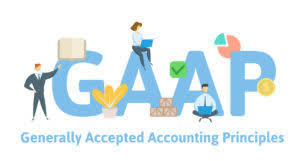
Book a demo today to see what running your business is like with Bench. Our team is ready to learn about your business and guide you to the right solution. The bookkeeper is generally responsible for overseeing the first six steps of the Accounting Cycle, while the last two are typically taken care of by an accountant. While there is a general overlap between the two professions, there are a few distinctions that are later discussed in this article. This content has been made available for informational purposes only. Learners are advised to conduct additional research to ensure that courses and other credentials pursued meet their personal, professional, and financial goals.

Bookkeepers reveal the No. 1 secret to preventing fraud
- Small steps also give everyone time to familiarize themselves with the new bookkeeping software.
- The scope of their work often depends on the size and type of business.
- This level of security protects your business against data loss and gives you peace of mind knowing that your financial information is safe and always available when you need it.
- To make it even easier, bookkeepers often group transactions into categories.
- Their work allows business owners to closely monitor expenses and comply with tax regulations.
This means checking for errors and making sure details match supporting documents, like receipts. Our intuitive software automates the busywork with powerful tools and features designed to help you simplify your financial management and make informed business decisions. Being consistent, accurate, and minimizing errors are key characteristics that employers are seeking for this position. It is indispensable to have a knowledge of accounting and to understand how to use accounting software systems. According to the US Bureau of Labor Statistics (BLS), the estimated median annual salary for bookkeepers in the US is $49,210 1. It’s possible to earn more money depending on the industry in which you work.
Understanding of basic accounting principles:
Bookkeepers are individuals who manage all financial data for companies. Without bookkeepers, companies would not be aware of their current financial position, as net sales well as the transactions that occur within the company. Double-entry bookkeeping is the practice of recording transactions in at least two accounts, as a debit or credit. When following this method of bookkeeping, the amounts of debits recorded must match the amounts of credits recorded. This more advanced process is ideal for enterprises with accrued expenses.
- Xero is another preferred option for its cloud-based access and robust reporting features, allowing collaboration from anywhere.
- Bookkeepers handle the daily finances, making sure everything is correctly noted.
- Attention to detail is a paramount skill in bookkeeping, as precision is key when handling financial data.
- Accountants also ensure compliance with financial regulations and may conduct audits to verify the accuracy of financial records.
- Whether using a single-entry or double-entry system, keeping your general ledger organized is crucial for tracking cash flow, expenses, and overall business health.
- The bookkeeping world is about to get even better for business owners.
What Skills Are Required To Be a Successful Bookkeeper?
Certified public bookkeepers have mastered concepts like depreciation, payroll, and adjustment entries. There are key differences between bookkeepers and accountants that you want to know before hiring a financial professional. You know what a bookkeeper does and what their day-to-day responsibilities look like. But how do these job duties translate what is a bookkeeper into benefits for your business? A bookkeeper can help organize your business finances so you can focus on running and growing your small business.
«To become a bookkeeper, typically you need a high school diploma or equivalent as the minimum,» Weitner said. «Many times, you will see job openings that state a degree is desired but not required.» Modern financial automation tools can help you track assets, liabilities, and owners’ equity in real time, giving you better visibility into your financial position. It’s not uncommon for the terms «bookkeeping» and «accounting» to be used interchangeably. While there is some overlap between these two processes, bookkeeping and accounting are not quite the same. They compare actual expenditures against the projected budgets to identify discrepancies and provide actionable insights.
- Your bookkeeper might also prepare other auxiliary reports for your business, like accounts payable and accounts receivable aging reports.
- Rather there are several types that will likely be offered and or discussed with you upon completing your request.
- The bookkeeping process can be described to a non-specialist as the practice of methodically recording all monetary transactions made by a business to provide a clear financial overview.
- Bookkeepers manage financial records, track transactions, prepare reports, and resolve discrepancies to support business operations.
Do I have the time?

While some bookkeepers may have developed similar skills, that level of training isn’t required to be called a bookkeeper. Bookkeepers maintain the financial records of a business by categorizing and keeping track of transactions and accounts Suspense Account payable. Take routine bookkeeping off your never-ending to-do list with the help of a certified professional. A QuickBooks Live bookkeeper can help ensure that your business’s books close every month, and you’re primed for tax season.

Subscribe to our newsletter for the latest accounting insights and updates
Bookkeepers gather information from bank and credit card transactions, invoices, receipts, bills, payroll records and other sources, often recording the data in bookkeeping software. This information can be used to assess a business’s assets, liabilities, revenues, expenses and cash flow. Bookkeeping is the process of tracking a business’s financial transactions.
What Skills Do You Need to Be A Bookkeeper?
Consider qualifications offered by The Institute of Certified Bookkeepers and The Association of Accounting Technicians. While a degree is not always necessary, some companies will look for candidates with coursework in accounting. According to Talent.com 1, the median salary for bookkeepers in the UK was £26,000 per year as of May 2024. Bookkeepers can sometimes choose between full-time and part-time positions, and they may work in an office or from home.
Bookkeeping has its benefits, but it also comes with a few disadvantages, depending on whether you’re hiring someone or doing it yourself. Here are some bookkeeping drawbacks you might face as a small business owner. In these documents, transactions are recorded as a single entry rather than two separate entries. To make the topic of Bookkeeping even easier to understand, we created a collection of premium materials called AccountingCoach PRO.
